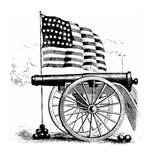
Can a Political Conservative Be a Christian?
A QUESTION OF PRIORITIES
“Can a political conservative be a Christian?” This question provokes two responses: conservatives indignantly answer, “Of course,” and Christians on the Left reply smugly, “Of course not.” Both answers fall considerably short of the full truth. One could write whole books exposing the self-righteousness that infects the Christian liberal’s attitude toward conservatives; more important at this time is an examination of the flaws in the conservative’s assumption that his political ideology and his religion co-exist effortlessly.
Until recently, liberalism held such sway that anyone even mildly sympathetic with conservatism would have concentrated his fire upon the liberals and would have sought to encourage that conservatism which dissented from the dominant ethos. In politics the liberals had their way in the 1960s, and if the next decade brought an end to their reign, it would be mistaken to view its downfall as a triumph of the Right: the chicanery of Richard Nixon and the banality of Gerald Ford did little to gladden principled conservatives. While Jimmy Carter became the bête noire of the Left, with his commitment to most of the items on the liberal agenda, he forged another link in the chain that stretches back to Franklin Roosevelt.
In the religious arena conservatives faced an even direr plight. By the 1970s much of American Protestantism had been battered by nearly a century of theological liberalism. From Walter Rauschenbusch’s Social Gospel to Harvey Cox’s celebration of the “secular city,” mainline Protestantism had been steadily eroded by men intent upon secularizing the Gospel into an almost exclusively temporal affair. The Roman Catholic Church, historically a fortress of sound theology, faced an onslaught from priests, nuns, and laymen who, in the wake of the Second Vatican Council, scrambled to outdo the Protestant secularizers. Conservative Catholics wandered disconsolately through the ruins of their Church, while their Protestant counterparts shored up the walls of the ghetto to which they had retreated in the face of the liberal assault.
In the late 1970s the unexpected happened: conservatives began to move back into power. Theological conservatives in the Roman Catholic Church regrouped their scattered forces, and with the election of Pope John Paul II and the rising militancy of the prolife movement they exuded a renewed vitality. Protestant conservatives marched out of the ghetto, and with such organizations as the Moral Majority leading the way, they asserted themselves in both religion and politics. Ronald Reagan’s election to the Presidency in 1980 provided a fitting culmination to the resurgence of the 1970s. Millions of Catholics, distressed at the decline in moral standards, abandoned the Democratic Party to vote for Reagan, and Protestants in the South and Midwest saw in him the embodiment of their hopes for political and moral renewal. Whether in religion, politics, economics, or public policy, conservatism entered the new decade with an ebullience and optimism it had not previously possessed in the 20th century.
You May Also Enjoy
Elderly folks I once knew were proud of their indifference to the urban American world and its culture, its values and habits, of which they occasionally heard from their children.
The mother of a child I was studying said, 'You ask our daughter about everything except God.' I was at a loss for words.
Extremely disordered conduct is simply evidence that one has turned an extremely important and central aspect of human life away from its natural purpose.

